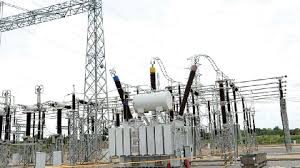News Investigators/ The Minister of Power, Adebayo Adelabu has blamed the incessant grid collapse in Nigeria on poor infrastructure, saying decentralization of the power sector would help to address the problem.
Mr. Adelabu said the deplorable state of the country’s power infrastructure would be better when the sub national governments start to participate in the generation, distribution and transmission of power.
He said there is a need to have power grids in different regions or states to put an end to incessant grid collapses, noting that unless this is achieved the situation would be inevitable without sufficient investment in the sector.
Mr. Adelabu spoke on Wednesday at the unveiling of Hexing Livoltek, an electricity metre manufacturing company in the Lekki area of Lagos State.
The minister noted that President Bola Tinubu had already signed into law the Electricity Act 2023 that would allow for such wider participation. He noted that the decentralisation of the power sector would help the plan to build grids in each region.
“This Electricity Act has decentralised power. It has enabled all the subnational governments, the state government and the local government, to be able to participate in the generation, transmission, and distribution of electricity,” he said.
“We all rely on a single national grid today; if there is a disturbance of the national grid, it affects all 36 states. It shouldn’t be like that. This will enable us to start moving gradually towards having regional groups and possibly having state grids.
“And each of these grids will be removed and shielded from each other. So, if there’s a problem with a particular grid, only the state where it belongs will be affected, not the entire nation. So, this is one of the impacts this Electricity Act will have.”
“We keep talking about grid collapse. Grid collapse, grid collapse, whether it’s a total collapse, partial collapse, or slight trip-off. This is almost inevitable as it is today, given the state of our power infrastructure, the infrastructure is in deplorable conditions, so why won’t you have trip-offs? Why won’t you have collapses, either total or partial? It will continue to remain like this until we can overhaul the entire infrastructure. What we do now is to make sure that we manage it,” he said.
Mr. Adelabu maintained that there was no grid collapse in the last four months until it happened again on Monday.
“In the last four months, we have not heard of any grid collapse, except two days ago when we had a partial collapse that didn’t even last two hours. So, what we work on now is how to improve our response time, to bring it up each time it collapses. There are transformers of 60 years old, and 50 years old, and you’re expecting them to perform at the optimal rate? It is not possible. That is why we need a lot of investments in this infrastructure to bring them up to speed, to bring them up to the state that can give us a grid that will not collapse again,” he said.
While unveiling the company, the minister commended the firm for investing so much in Nigeria at a time when some were divesting.
He said the event marked a significant milestone in the journey of the sector towards a more efficient and equitable electricity sector.
The minister explained that the launch of the meter factory represented a key achievement in the ongoing efforts to prioritize local content, foster job creation and reduce Nigeria’s reliance on importation.
The chief executive officer of Hexing Group, Robert Liang, expressed optimism about Hexing’s expansion into Nigeria, calling it a pivotal moment for the company and a commitment to advancing clean energy in the country.
“This is a proud moment for the Hexing Group as we open our branch in Nigeria. It’s more than just an office; it’s a step towards a future where clean energy drives the growth of this great nation,” he said.
